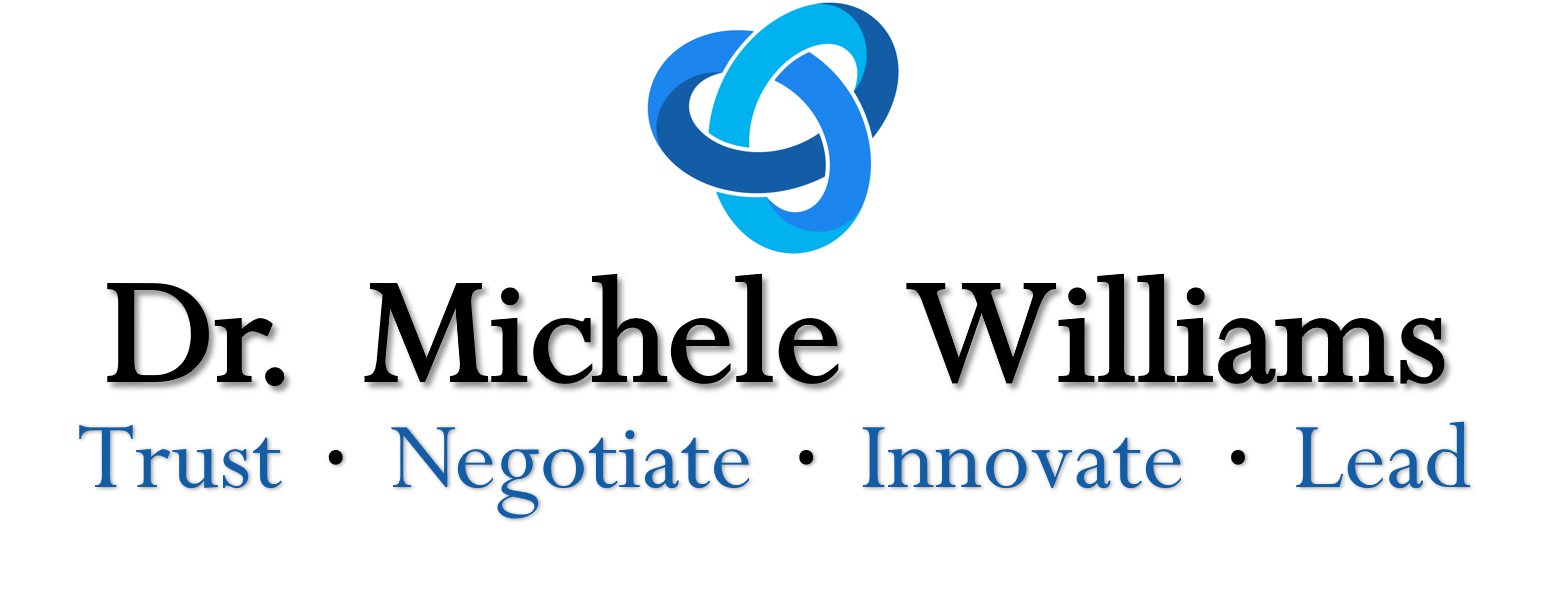Is Fear Sabotaging Your Ability to Negotiate? Part I

Is Fear Sabotaging Your Ability to Negotiate? Part I
I welcome your thoughts on this 3 part article, which will cover 6 fears that may be sabotaging your negotiations. I will be sharing research-based tips and tools for more effective collaboration at work. You can place your ideas in the comments section or email them to michele@drmichelewilliams.com.


Are you too nice? Do others often take advantage of you when you negotiate?
If you answered yes to these questions, you may not be getting what you want and deserve at work. In my post, “Too Nice to Negotiate?”, I discussed tough tactics for nice negotiators. In this post, I will delve deeper into the fears that often derail you from positive negotiation outcomes and make researched-based suggestions for how you can
manage these fears.
Negotiation is not just an interpersonal decision-making process that occurs in every job and on every team according to Leigh Thompson, The Mind and the Heart of the Negotiator. It is also a critical skill for leaders as discussed in The Agenda Mover by Samuel Bacharach and for entrepreneurs as discussed in Entrepreneurial Negotiation by Lawrence Susskind & Samuel Dinnar.
But more importantly, it is a decision-making process that affects how you see yourself (Part I of this series), reflects how others treat you (Part II) and embodies how you feel while interacting with others (Part III). It is fears related to these three areas that can prevent you from achieving your goals because these fears can lead you to avoid negotiations or to terminate negotiations that could have led to win-win outcomes. On the one hand, you may fail to enter into negotiations, hoping others will give you what you deserve without having to ask. On the other hand, you may settle for a less than you deserve or walk away from a negotiation prematurely to avoid the discomfort of
persistently asking for what you want. Over the next 3 weeks, I will explore each of the categories of fears above and offer research-based strategies for preventing them from impacting your ability to negotiate for what you want.
“When nice people negotiate, they run the risk of being seen as greedy, selfish, unfair and pushy.”

Fears Related to How You See Yourself
Nice people see themselves as kind, helpful and ethical and want others to recognize these characteristics in them. However, when nice people negotiate, they run the risk of being seen as greedy, selfish, unfair and pushy. If you are a nice negotiator, you may fear being disliked or treating others in an unfair manner. You may believe that negotiating will damage your reputation and self-image. In over 10 years of teaching and coaching negotiations, these identity-related fears were the top to fears articulated by MBA students and new managers.
- Fear of being disliked
- Fear of being unfair
1. The Fear of Being Disliked
I could tell you that your fears are unfounded, that people will not dislike you or accuse you of being unfair when you negotiate, but that would be a lie. People may dislike you. However, these instantaneous negative feeling may not mean long-term damage to your relationship. Think about your best friend, spouse or significant other. Do you like this person every single moment of every day? Of course not. Moments of tension and arguments occur even in strong ongoing relationships.

Taking a moment for a reality check can help. Reframe the moment. Thinking about the momentary feelings of being disliked that you fear as a natural part interpersonal decision-making can help you persist in a negotiation, seek information and give yourself the time and permission to come up with creative ways to meet both parties’ goals. Thinking differently helps you feel differently. (To learn more about “thinking differently” called cognitive rethinking by social psychologists, i.e., I would suggest Learned Optimism by Maritn Seligman, take the quiz, and Happiness Track by Emma Seppala)
To Do: Think about your goals: Make a list of the reasons that you deserve what you are asking for but then dig deeper to uncover your true interests? Think about other ways of achieving those goals? Then think about the other side: What do they want? What options might meet both sets of needs?
Putting your fears in perspective, while planning for you negotiation is an important step to success.

2. The Fear of Being Unfair
The fear of being unfair is complex because you can be fair by one set of rules and still judged unfair by another. Think about it this way, it is unfair to touch the ball with your hands in soccer but not in basketball. When you are negotiating and others call your offer or suggestion unfair, it may be unfair given the way they are thinking about the situation, but that does not mean that you should accept their frame of reference without question—they may be playing a different game! When you fear being unfair, it can help to brainstorm multiple criteria, ways of think about fairness or sets of rules that could apply to the situation.
For example, when negotiating for a raise, your boss may be concerned with equity across employees within your firm, whereas you may be more concerned with being paid a fair market rate for your skills. Because there are multiple ways to determine what is fair, accusations of fairness typically reflect only one way to evaluate the outcome. Reframing unfairness for others entails remembering that your request can be unfair by one standard (market value) while being fair by another standard (equality) and then advocating for your perspective. Even when negotiators agree in principle to use an objective rule of fairness, they often need to decide which objective standards they will use (Roger Fisher discussed this in detail in his classic book with William Ury and Bruce Patton, Getting to Yes). Remember the discussion of standards is in of itself a separate negotiation so be sure to prepare for it.
To Do: Before negotiating, think about what outcomes would be fair from your perspective. What rule are you applying to make that determination? Next, think about what the other side wants and what rules of fairness would justify their wants and needs. Understanding the other side’s likely standard of fairness and how it differs from yours can help you view accusations of unfairness differently. Accusations of unfairness do not necessarily mean that you are a greedy or unjust person but rather that you have work to do in persuading the other side that another way of evaluating fairness may be more appropriate and then co-constructing that standard for evaluating the fairness of your agreement.
Please comment below with examples of your own negotiation experiences and join me next week when I discuss fears about how others will treat you during a negotiation.
About the Author
Dr. Michele Williams (University of Michigan, Ph.D.) is assistant professor and the John L. Miclot Fellow in Entrepreneurship at the Tippie College of Business, University of Iowa. She is also a scholar with Cornell University’s Institute for Health Futures and with the Smith Family Business Initiative at Cornell’s Johnson College of Business.
Michele has taught negotiations to executives, startups, MBAs and undergraduates at leading schools of management for over 10 years. She is co-author of the Four Capabilities Leadership Assessment—an online 360° assessment used by organizations to enhance the leadership potential of managers. She speaks internationally on topics related to her research on trust, sustaining high-performing work relationships and women in business and entrepreneurship.
Follow Michele on Twitter @MicheleWilliamz.
©2018 Michele Williams. All Rights Reserved.

